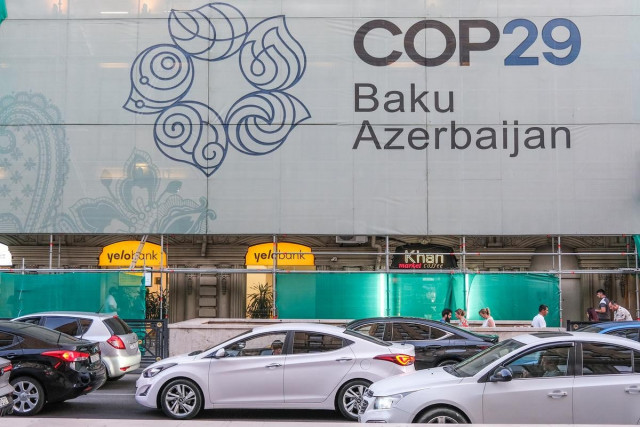Will climate commitments hold at COP29?
As Azerbaijan hosts, it also boosts gas exports while nations grapple with balancing green goals

This month, Azerbaijan is set to host the COP29 (Conference Of the Parties) global climate summit while simultaneously planning to increase its annual gas production for export to the European Union (EU) by as much as 33% over the next few years. This decision comes as the country has already weakened its updated Nationally Determined Contributions (NDC) and removed its 2030 target altogether. Such moves are at odds with the global net-zero goal for 2050, especially as the International Energy Agency asserts that no new fossil fuel exploitation should occur if net-zero goals are to be met. However, the oil and gas sector seems to be treating the moment like a gold rush rather than a looming climate crisis. The United States (US), Australia, and Gulf nations continue to expand production, showing little interest in halting new oil and gas investments or even discussing fossil fuel phaseouts. The only "green" investment they readily endorse is Carbon Capture and Storage (CCS) technology, which captures CO2 at the source and stores it underground.
Despite 29 COP meetings under the United Nations Framework Convention on Climate Change (UNFCCC) and 16 biodiversity-focused conferences, global climate investment remains lackluster. While the Green Climate Fund, established after COP16, has funded multiple projects in Pakistan, however, global disbursements remain below $5 billion since 2010. The Loss and Damage Fund for developing countries has also been set up, yet China and India, among the top five global polluters, have declined to contribute. To date, the fund has raised less than $1 billion, making it seem unviable and impractical for many countries to pledge significant sums.
Clearly, any solution to climate issues must organically align with global demand-supply economics. For instance, Azerbaijan has little incentive to curb oil exploration unless the EU reduces its fossil gas consumption. In the absence of Moscow as a leading gas exporter, Azerbaijan is seeing significant gains by doubling down on oil production. Any green initiatives by Baku are likely to focus on reducing domestic gas consumption to free up more supply for EU exports. Baku's recent partnerships with TotalEnergies and British Petroleum underscore the precedence of economic interests over environmental ones.
Thus, when cities like Paris and London tout their net-zero carbon agendas, their achievements are often intertwined with the actions of countries like China, Azerbaijan, and Indiataking on the "dirty" jobs on their behalf.
Over time, it has become evident that climate change cannot be tackled without engaging both producers and consumers in the conversation and holding them accountable. A three-part carbon tax could address this, involving charges that affect the end-consumer, distribution, shipping, trade routes, and a portion from the producers' net profits. Such an accountability structure would transform global trade. For example, the carbon footprint of iPhones produced in China but sold in the US and EU should not be counted solely as China's emissions. The footprint should be proportionally split between China and the country of sale. Similarly, the footprint from shipping should be partially allocated to the consuming country.
All carbon-related costs of a product could thus be converted into a tax dedicated to supporting green practices. If such carbon tax accounting were implemented, Western countries would likely need to reduce consumption, prompting companies like Apple to recycle products to reduce their footprint and control carbon taxes. Funds collected through these taxes could be reinvested in research and development, potentially closing the carbon loop over the coming decades.
As COP29 approaches, climate finance will be a crucial topic, alongside discussions on frameworks for the Loss and Damage Fund. However, a more beneficial shift in the debate would focus on creating a mechanism for carbon duties covering the full supply chain, from production to consumption. Since neither major producers nor major consumers seem ready to take responsibility for their carbon footprints, a supply chain-oriented carbon duty and tax mechanism could offer a fair and uniform way to penalise emissions. Revenue from these duties could be directed toward R&D, the Loss and Damage Fund, and other Sustainable Development Goal (SDG)-based initiatives.
THE WRITER IS A CAMBRIDGE GRADUATE AND IS WORKING AS A STRATEGY CONSULTANT


















COMMENTS
Comments are moderated and generally will be posted if they are on-topic and not abusive.
For more information, please see our Comments FAQ